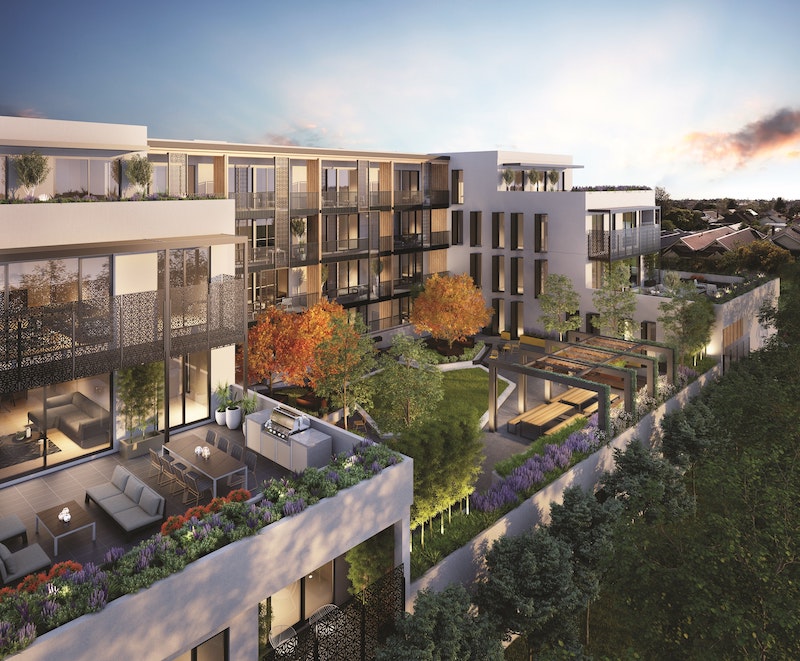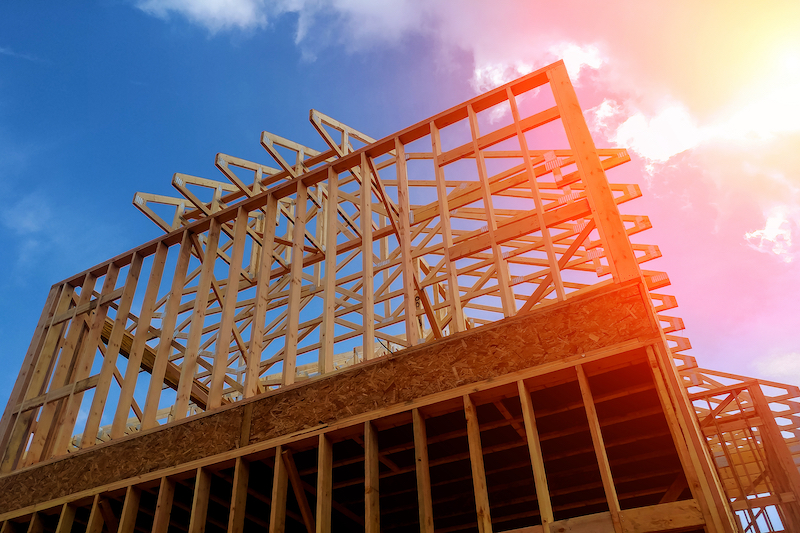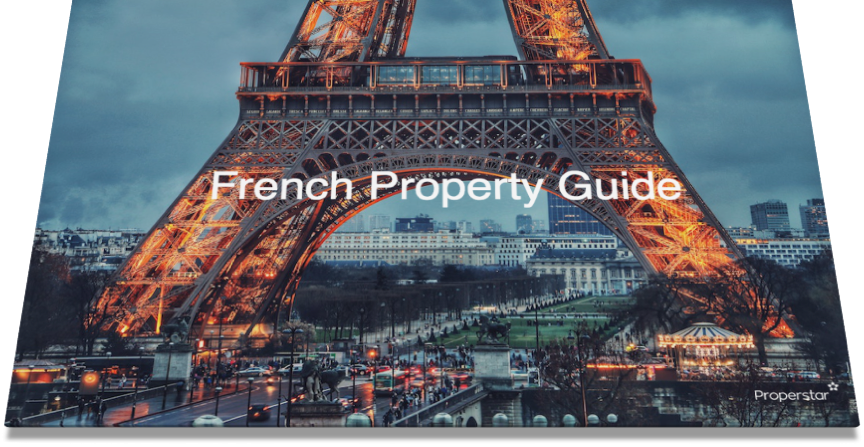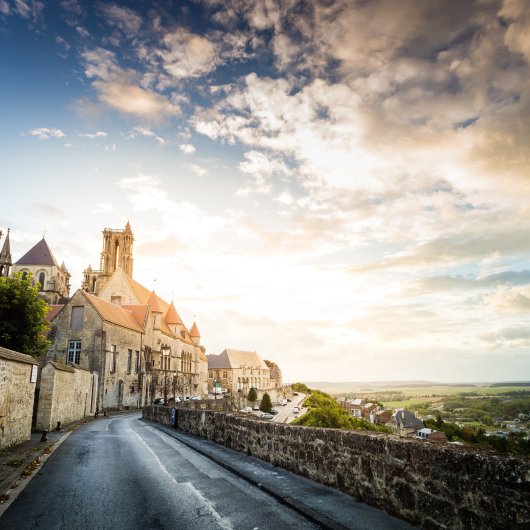
Buying new construction in France - pros and cons
Buying new construction in France - pros and cons
Are you dreaming of an imposing chateau, a classical style maison de maitre or a charming village house in creamy stone? That's what many people first think of when they consider buying a property in France - but buying new build has many advantages, and some new developments have all the elegance and style you'd expect of great French architecture.
On the financial side newbuild offers some real advantages. If you buy off plan there's a standard VEFA (Vente en l'Etat Futur d'Achèvement) contract which limits any initial deposit to 5% deposit - half the normal 10% for resale properties; it also schedules staged payments up to final delivery. Developers are backed by bank guarantees and offer an assurance decennale, a 10 year guarantee on the building work, so your money is safe before and after you complete the purchase! (Of course, it's always a good idea to check the assurance decennale papers, just in case.)
VEFA staged payments consist of:
• completion of foundations, 35% (including any deposit);
• structural works finished, a further 35% - taking you up to 70%;
• completion of works, further 25%% - taking you up to 95%;
• balance payable when the property is handed over.
The promoter has to provide a completion guarantee, usually backed by insurance. If the building isn't completed, this guarantees that you'll be fully reimbursed.
If you're buying VEFA you'll also benefit from lower notaires' fees, at 3% against 7-8% for resale properties. (Note that if you buy a new property that's already completed, you'll pay the higher rate.)
You'll get a modern property, but you will have to wait
But modern developments have other advantages too. In many cities, older properties in the centre are often small and cramped, and they're often 'energivore' - poorly insulated and expensive to run. Modern flats come with vastly improved energy credentials, and very often with larger, sometimes open-plan living areas, and large windows to make the interior feel light and spacious. You'll also often have the chance to benefit from dedicated parking spaces - which can be a nightmare if you live in an older flat.
The disadvantage, of course, is that most developments will take between a year and 18 months from starting the VEFA contract to delivery.
However, if you're set on country life, you won't find much in the development schemes of firms like Bouygues, Icade and Nexity to suit you. They tend to focus on larger cities, from 100,000 population upwards. On the other hand if you're buying with an eye to letting, or you're interested in living close to one of the big cities such as Toulouse or Lille, there's a lot of choice ranging from small infill developments to whole new quartiers.
Smaller towns like Houdan (Yvelines) often have municipality-sponsored building programmes that give you the best of both worlds - a thoroughly modern home just a couple of hundred metres from the centre of a beautiful old town (Houdan has a castle, Gothic church, and lots of half-timber buildings).
 But where to find those new builds?
But where to find those new builds?
For investors, newbuild offers a true turnkey investment. The French government has had a policy of encouraging investment in newbuild housing for decades by offering French residents tax breaks, and that means developers are used to selling to investors as well as occupants. (The continuation till 2022 of this tax break, which was originally meant to end in December 2020, should help keep the new build market rolling despite the impact of Covid-19.)
You'll find that some cities have a rather limited range of newbuild available. Lyon, Toulouse, Strasbourg, and - very notably - central Paris are tight markets, where stock sells quickly and builders can't keep up with demand. On the other hand at the moment Lille, Marseille and Nice are well supplied, and Normandy seems to have a very active new-build market in its major cities.
Tight markets haven't been helped by the fact that the first lockdown saw many work sites closed - though in the current lockdown, building sites have been allowed to continue as long as the workers can social distance. Figures from FPI, the French property promoters' organisation, show a 37.5% decline in new development sales listings in Q3 2020, as well as a fall in planning permissions granted. The fall in PP's was worst in Ile de France, at 25%, but it's been pretty much duplicated everywhere.
That may also mean newbuild prices will stay pretty high, supported by tight supply, even if demand is slightly subdued.
 Another option to get your newly built home
Another option to get your newly built home
But suppose you want a country life, but you also want a newbuild property? Self-build is far more common in France than in many other countries, and there's a whole subsector of construction companies dedicated to helping the private individual build the house they want, where they want. Architects, too, can often help - in some cases helping to find the plot, as well as create the design. Since they know local planning rules they are a really good first port of call!
Regular buildings firms like Maisons Concept in Centre-Val de Loire have a number of standard designs, so you won't get a 100% custom job. But while some of their designs are banal little 'pavillons' (bungalows), they also provide more contemporary styles. And they'll usually accommodate a certain amount of customisation if, for instance, you want a more open-plan interior or a particular style of bathroom.
You could, on the other hand, employ an architect to create something rather different and even to work as maitre d'oeuvre to run the build for you. Quite a few French villages have a couple of stunning modernist homes tucked away between older farm buildings, so this isn't as rare as it sounds. A third option is to look at 'kit houses' like the German based Huf Haus.
True, these modern designs won't look like the property porn pics of farmhouses with rambling wisteria, or chateaux bristling with little turrets. But France is a country that's modernised itself again and again, and it's now entering the eco-building phase with real aplomb.
One local village now has a couple of straw bale buildings, too, as the mayor has a record of promoting eco-building. And that's one of the things that we'll definitely see more of in future, since the government's plan for recovery from the crise sanitaire (Covid crisis) includes a significant boost for sustainable building. In fact, if there's one way in which Covid has really changed the building sector in France, it will be in making eco-building far more widespread - and making energy-efficiency another component of elegant French style.

 But where to find those new builds?
But where to find those new builds? Another option to get your newly built home
Another option to get your newly built home











